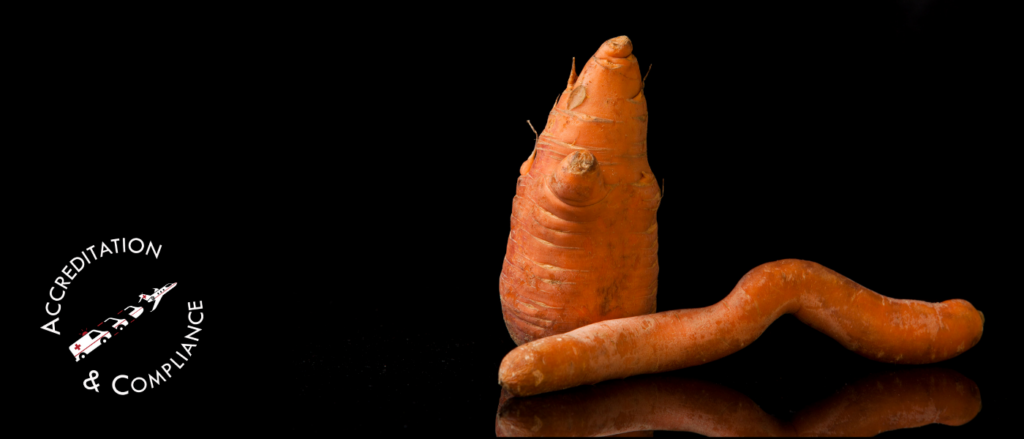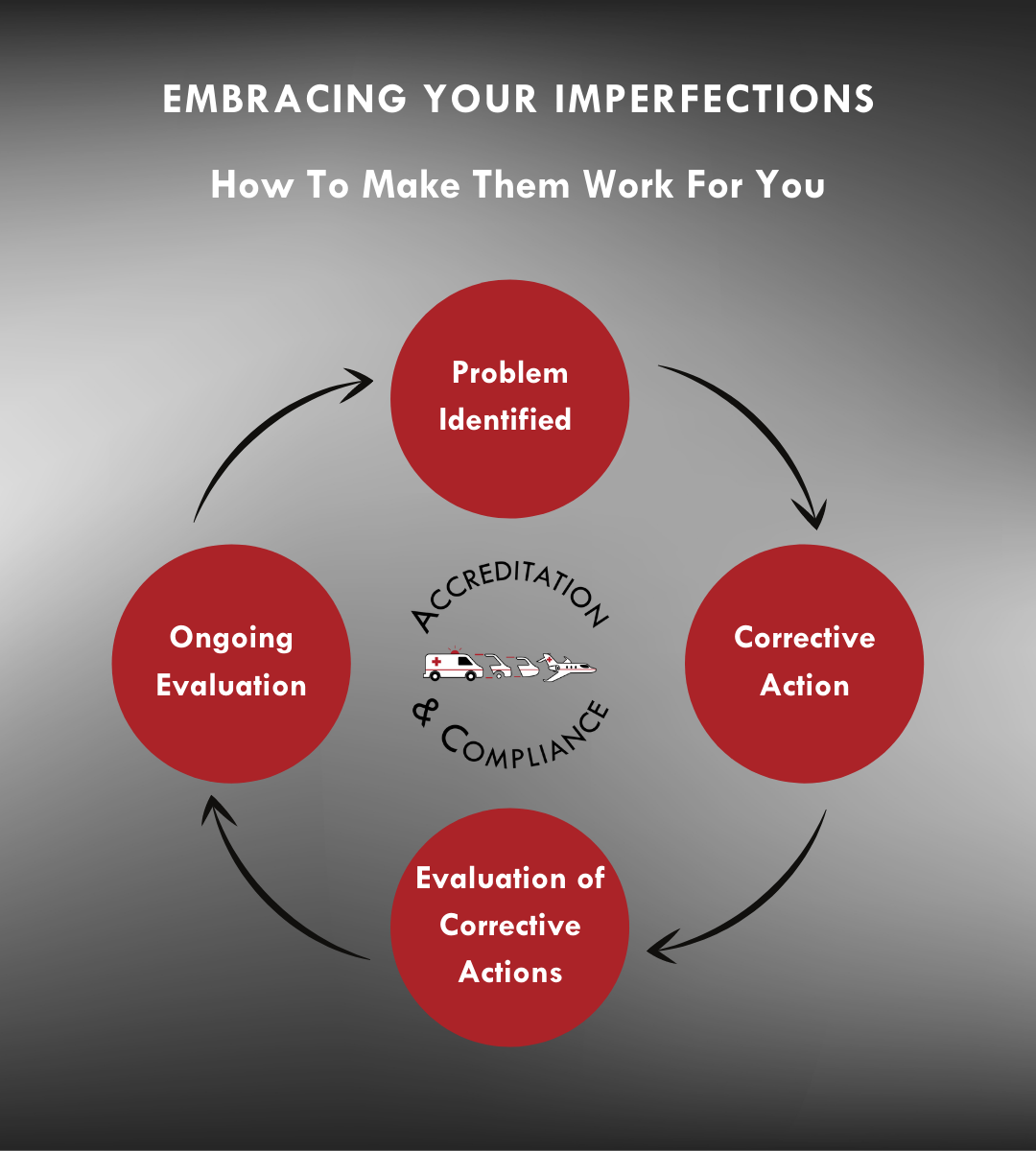All programs have problems. The successful ones identify them, implement changes and evaluate the effectiveness of the changes. The unsuccessful ones continue to have, well, problems.
When an outside, or third party, is evaluating your program against a set of measured standards, your natural instinct may be to achieve 100%.
Why?
We all want to look great in front of others and do not want to learn that we are not as good as we think we are.
Let’s discuss why this is causing you undue stress and is the opposite of what auditors want to see.
When seeking accreditation, the expectation of the auditor(s) is not that your program is perfect; it is that you are not perfect.
Every transport program has its own problems. While some may be unique to the program, most afflict multiple programs. Your problems are likely not unique to you.
Looking at it from a high level, a successful Quality Management (QM) program will identify problems and implement corrective actions to improve those problems. At the end of the cycle, the effectiveness of the changes are evaluated.
With this system in place prior to your audit, the accrediting body will recognize that you have identified problems, implemented changes and are monitoring the effectiveness of those changes. Evidence of this may be requested for their review. These paper trails can be in the form of QM Meeting minutes, corrective action documentation, change in policies, etc.
Again, every transport program has issues. The auditors are expecting to see your problems and how your QM program has identified, corrected and evaluated them.
Look at it this way: the outside auditor is functioning as your quality management system. They will identify problems (i.e., below standard deficiencies) and ask you to submit corrective actions with evaluation as proof of compliance.
The important thing about this concept: when the auditor presents deficiencies to you, they are monitoring how you respond. How you respond indicates the level of departmental integration and future success in growing your QM program.


